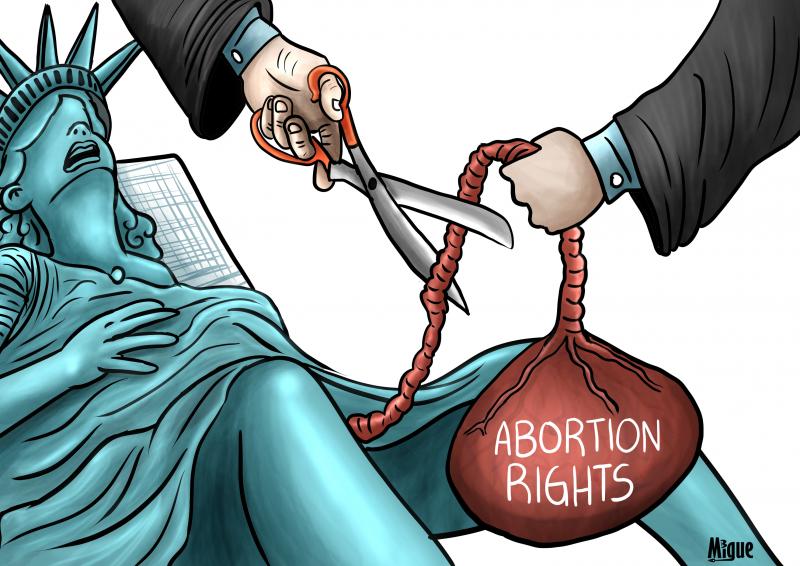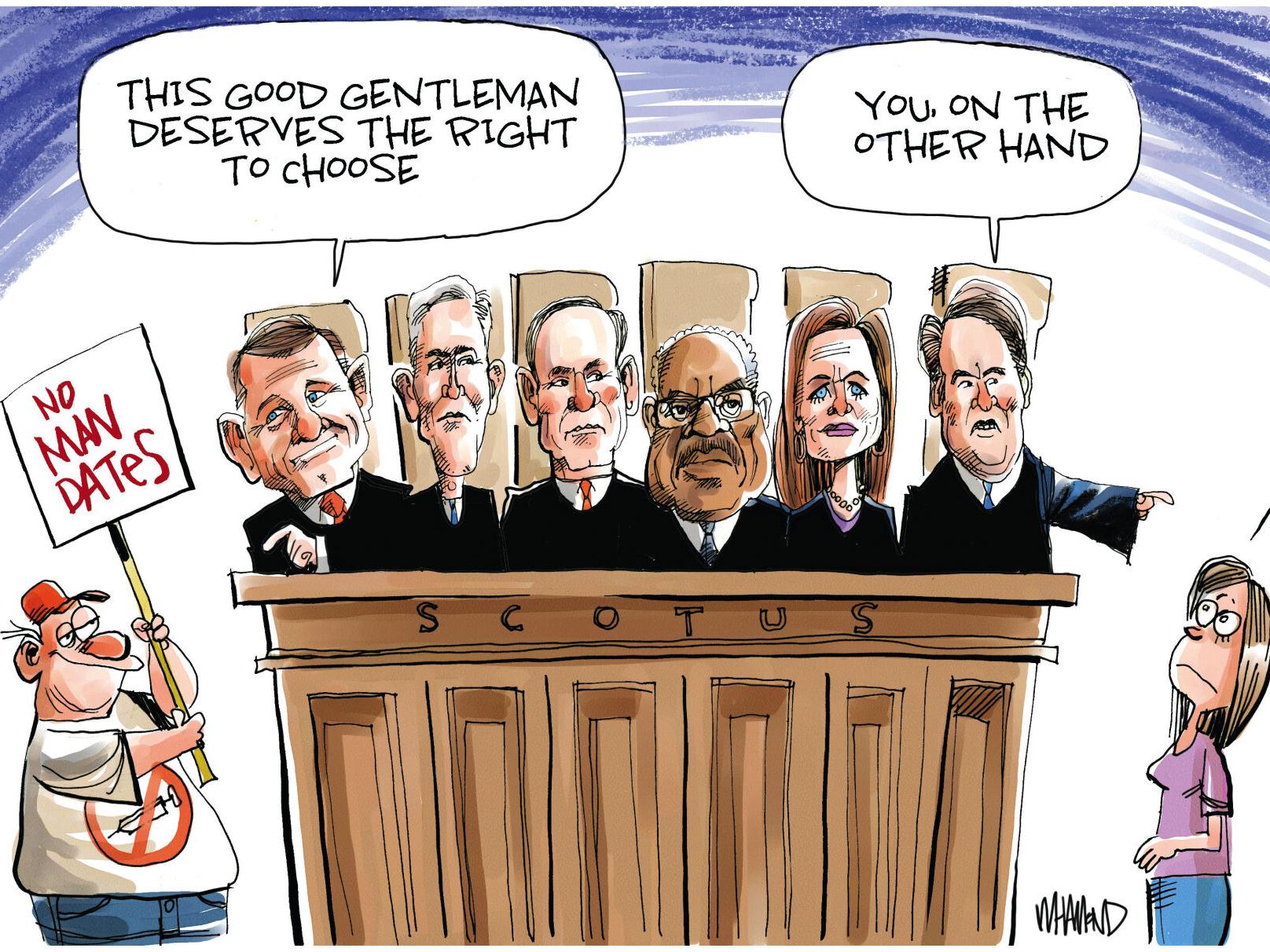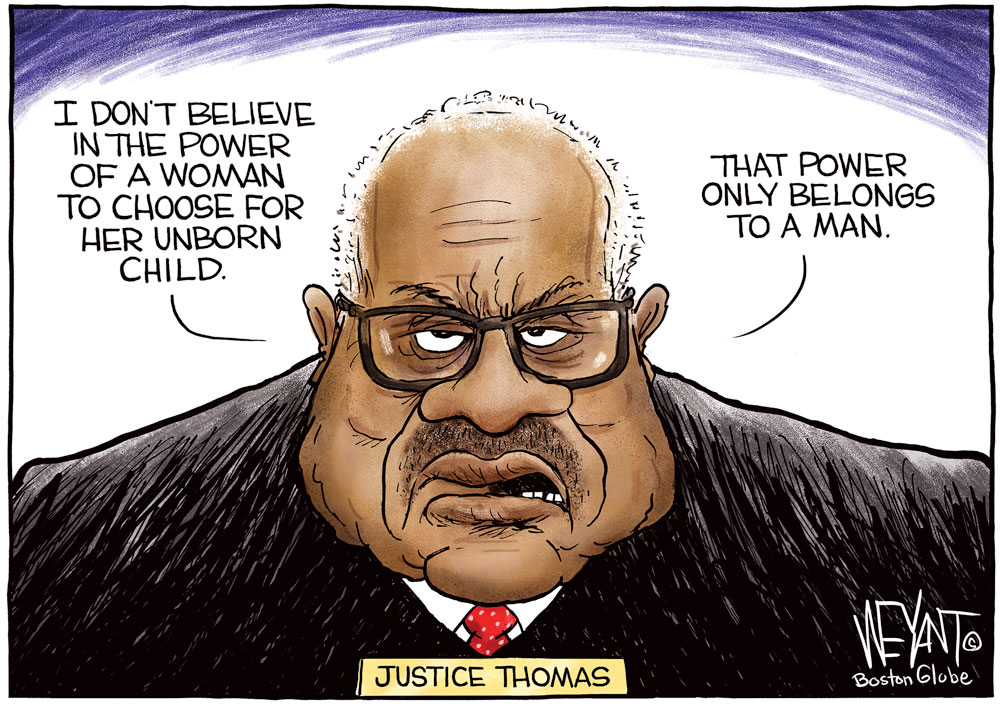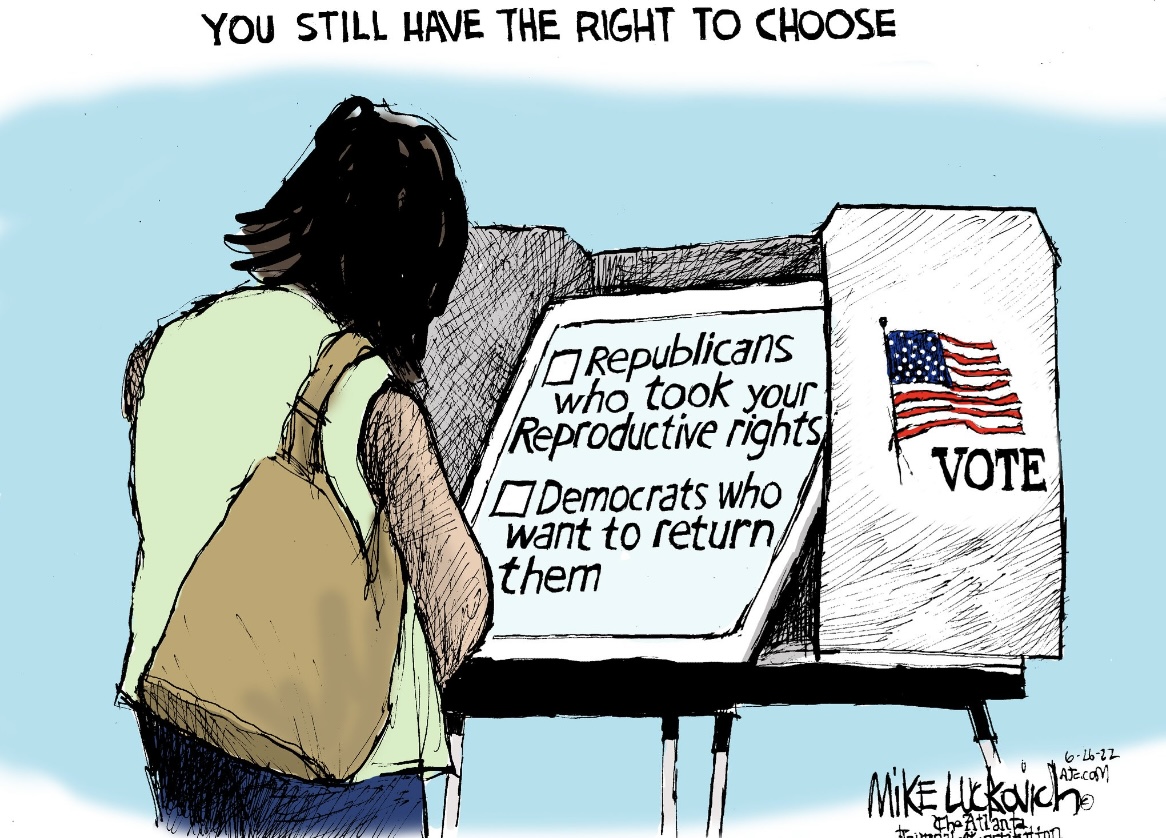
The citizens of the state of Kansas sent a strong message to their state legislature about what should be considered an unalienable Kansas state right. They voted this week, approximately 60-40, against a state constitutional amendment that would change the current language in Kansas’s state constitution that grants women the right to an abortion. For now, Kansas citizens can celebrate an abortion rights victory, but next year in 2023 the same Kansas citizens celebrating now will be crying over losing their Kansas right to an abortion.
In 2019 the Kansas Supreme Court ruled 6 to 1 that the Kansas state constitution protects the “right of personal autonomy,” meaning state law cannot abridge the right “to control one’s own body, to assert bodily integrity, and to exercise self-determination. This right allows a woman to make her own decisions regarding her body, health, family formation, and family life decisions that can include whether to continue a pregnancy.” The ruling blocked a 2015 Kansas law that banned a second-trimester abortion procedure.

In response to the pro-choice Kansas Supreme Court ruling, the Republican-controlled Kansas state legislature placed a constitutional amendment that would have allowed abortions to be banned in Kansas on last Tuesday’s primary election ballot. Despite the massive 60-40 majority vote by Kansas citizens to maintain abortion state rights, the election ballot Republican state legislators chose to place the constitutional amendment on, reflects the autocracy that could ultimately cause Kansas citizens to lose in 2023 the unalienable right they democratically voted for in 2022.
To ensure that the amendment to ban abortion won, the Republican-controlled state legislature took the unusual step of placing a constitutional amendment on the August primary election ballot, as opposed to the upcoming November general election ballot. This was the Kansas Republican’s autocratic attempt to deny a one-person-one-vote to all Kansas citizens. Because Kansas is a red state where traditionally most Republicans vote in both primary and general elections, whereas most Kansas Democrats and Kansas independents only vote in general elections.

Kansas Republicans placing a constitutional amendment on a primary ballot is a clear indication of their willingness to autocratically defy the voting will of Kansas citizens, by giving themselves the ability to rule in defiance or against the will of a Kansas voting majority. Currently, the only thing keeping Kansas Republican legislative autocracy in check is the Kansas Supreme Court. Unfortunately, in 2023 that could change with the Kansas Supreme Court losing the legal ability to protect a Kansas citizen’s rights!!!
This past June the U.S. Supreme Court agreed to hear Moore v. Harper next year in 2023. The Supreme Court justices will decide if an ideology, the Independent State Legislature Doctrine (ISL), allows America’s 50 politically partisan state legislatures to set the rules for federal elections, free of supervision from their state courts or regulation by their state constitution. Proponents of the ISL ideology believe the American Constitution limits the authority to regulate federal elections to a state’s elected legislature and that the state’s governor, the state’s executive branch nor the state’s judicial system have any authority to regulate federal elections.

Since the U.S. Supreme Court has 6 justices more committed to the rule of conservative political ideology than to the rule of constitutional law, they will rule that state legislatures are free to regulate federal elections without regulation from a state constitution or supervision by any of their state courts. The justices will base their ruling on founding father James Madison’s federalist ideology:
“The powers delegated by the proposed Constitution to the federal government are few and defined. Those which are to remain in the State governments are numerous and indefinite. The former will be exercised principally on external objects, as war, peace, negotiation, and foreign commerce. The powers reserved to the several States will extend to all the objects which in the ordinary course of affairs, concern the lives and liberties, and properties of the people, and the internal order, improvement, and prosperity of the State”.
Madison’s intended for his federalist ideology to be constitutionally consistent, but the 6 conservative Supreme Court justice’s federalist ideology is politically inconsistent. For instance, the Supreme Court ruled that the state of New York doesn’t have a state right to prevent a woman from carrying a concealed gun on her body, but it ruled the following day, that the state of New York does have a state right to force a woman to carry a concealed child in her body.

After the 6 rule by ideology Supreme Court justices overturned Roe v Wade, their ideological leader Justice Clarence Thomas suggested that their conservative political ideology dictated that they should overturn other rights like gay marriage. When the Supreme Court rules next year in Moore v. Harper, that a state legislature is free to develop rules for the state’s federal elections with no possible supervision or regulation from the state’s judicial system or the state’s constitution, it’s very likely the Court will also open the door, based on their conservative political ideology of state rights, to state legislatures creating other laws without taking the will of voters, the state’s judicial system or a state’s constitution into consideration.
In other words, even though Kansas citizens voted this week to keep the language granting a right to an abortion in the Kansas constitution, the U.S. Supreme Court will rule in 2023 that it’s legal for the Kansas state legislature to create new laws prohibiting access to abortion procedures, regardless of whether it violates the Kansas state constitution or is contrary to the voted will of Kansas citizens.
American citizens who don’t want to lose other traditional constitutional rights in 2023 but want to continue exercising American democracy’s unalienable rights of life, liberty, one-person-one-vote-counted, the pursuit of happiness, and a woman maintaining control over her body in 2023. Cannot rest on the laurels of winning individual state abortion referendums, winning individual pro-democracy state Supreme Court decisions, or the House and Senate codifying access to abortion procedures into federal law.

Americans must elect Congresspersons and Senators in 2022 who will create a new law in 2023 mandating a 10th-year reappointment for Supreme Court justices. On the 1st day, the new law goes into effect, the President can replace up to a maximum of 3 rule of ideology justices, who have served 10 years or more, with 3 rule of constitutional law justices before any new Supreme Court cases harmful to the rule of constitutional law are decided in 2023. This is the only way Kansas citizens can avoid potentially crying in 2023 over the loss of access to abortion care.
